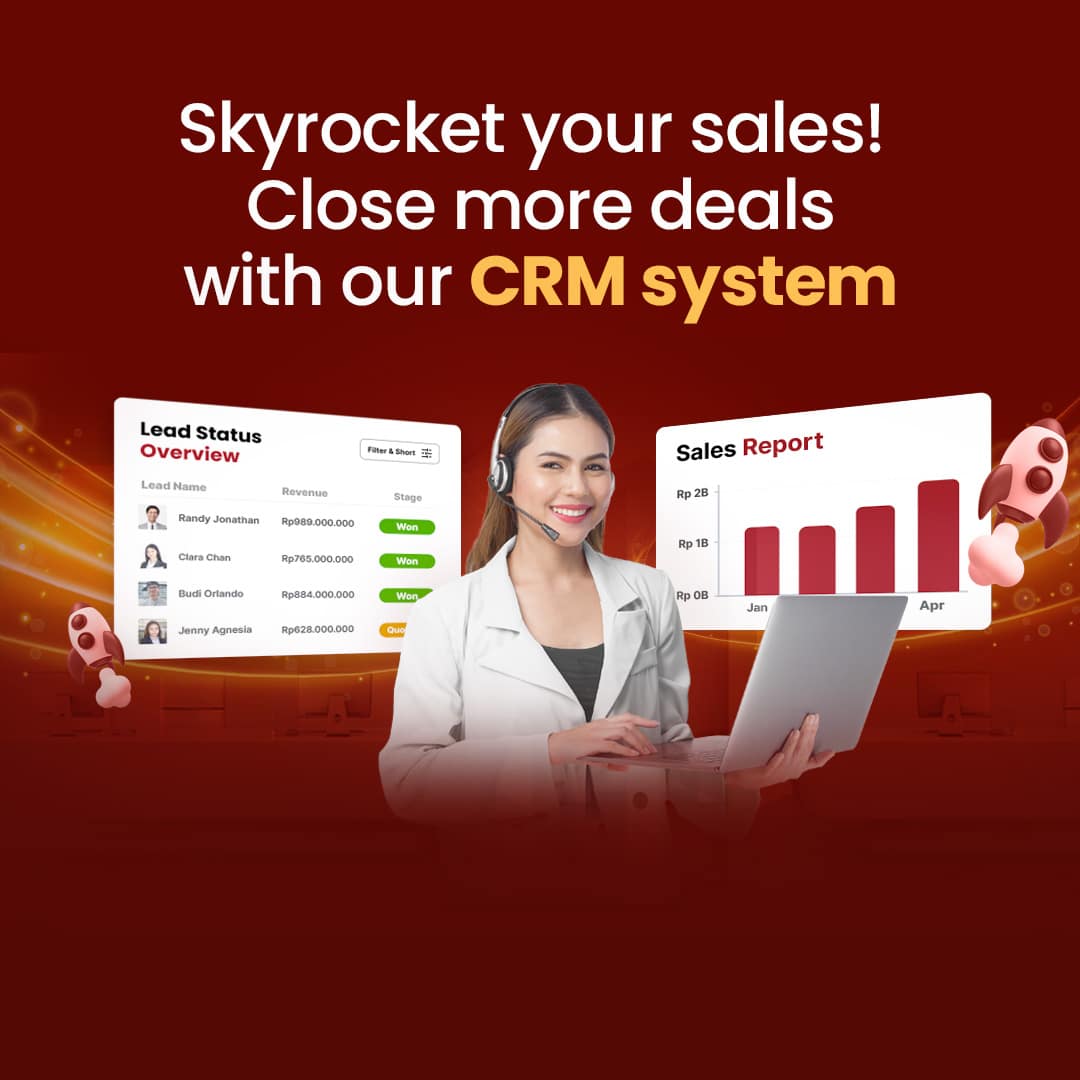In the busy business world, knowing how to sell is super important. Think of selling like going through a maze. In this maze, every turn could lead to a win or a loss. The sales pipeline is like a map that shows you the best way to go from meeting someone to making a sale. It’s a tool that makes selling less confusing and helps guide companies on how to turn people interested in what they’re selling into buyers.
With clear steps and a focus on doing things correctly, the sales pipeline is like a light showing the way in the tricky journey of making sales. It turns the tricky art of selling into something you can see and measure.
In this article, we’ll talk all about what a sales pipeline is, why it’s so helpful, and how it’s different from something called a sales funnel. We’ll give you tips and ideas on how to make your sales process better and help your business grow big.
Table of Content:
Table of Content
What is a Sales Pipeline?
A sales pipeline is a visual representation of the steps involved in converting prospects into paying customers. It provides a clear and structured overview of the sales process, from lead generation to deal closure.
Each stage in the pipeline represents the progress of a potential customer towards making a purchase. By effectively managing your sales pipeline, you can streamline your sales process, improve productivity, and ultimately boost revenue.
A well-defined sales pipeline allows you to identify and prioritize prospects, ensuring that you target the right audience for your products or services. It provides visibility into the different stages of the sales process, allowing you to track the progress of leads and take appropriate actions to move them toward closing the deal.
By actively managing and nurturing your sales pipeline, you can optimize your sales efforts and increase your chances of success.
Within a sales pipeline, there are typically several stages that a potential customer goes through. These stages can vary depending on the nature of your business and industry. Common stages include lead generation, lead qualification, product demonstrations, negotiation, and deal closure.
Each stage represents a specific milestone in the sales process and requires different strategies and actions to advance the prospect toward becoming a customer.
By following the defined stages of your sales pipeline, you can ensure that your sales team has a clear roadmap for guiding prospects through the buying journey. This structured approach improves efficiency, reduces the risk of missed opportunities, and enables better coordination within your sales team.
Effective sales pipeline management involves regularly reviewing and analyzing your pipeline to identify areas of improvement. This allows you to identify potential bottlenecks, evaluate the effectiveness of your sales strategies, and make data-driven decisions to optimize your sales process. By continually refining and updating your sales pipeline, you can adapt to changing market conditions and improve your overall sales performance.
In conclusion, a sales pipeline is a vital tool for businesses seeking to maximize their sales performance. By understanding the sales process, implementing a well-defined pipeline, and actively managing it, you can streamline your sales efforts, improve productivity, and drive revenue growth.
| Stage | Description |
|---|---|
| Lead Generation | Identifying and attracting potential leads |
| Lead Qualification | Evaluating leads to determine their fit for your product or service |
| Product Demonstrations | Scheduling meetings or demonstrations to assess customer interest |
| Negotiation | Finalizing the sale and obtaining a purchase commitment |
| Deal Closure | Completing the sales process and closing the deal |
Benefits of Sales Pipeline
Implementing a sales pipeline brings several benefits to your business. Firstly, it provides a clear sales process statement that helps your team understand and follow a structured approach to selling. This clarity improves work productivity and efficiency, ensuring that opportunities are not missed or mishandled.
A well-managed sales pipeline enables faster close deals, as it allows you to identify bottlenecks in the sales process and make necessary adjustments. By tracking the progress of your sales team, you can monitor individual and team performance, making data-driven decisions to drive success.
To visually represent the benefits of a sales pipeline, refer to the table below:
| Benefits | Description |
|---|---|
| Enhanced work productivity | A clear sales process statement improves work efficiency and ensures opportunities are not missed. |
| Faster close deals | Identification of bottlenecks in the sales process facilitates timely adjustments, resulting in faster deal closures. |
| Team progress tracking | Tracking the progress of your sales team allows you to monitor individual and team performance for better decision-making. |
Implementing a well-designed sales pipeline not only improves your team’s efficiency but also allows for faster and more successful deal closures. Furthermore, it provides a reliable framework for monitoring sales team progress, ensuring that performance is tracked and optimized for continuous growth.
Sales Pipeline vs Sales Funnel
While the terms “sales pipeline” and “sales funnel” are often used interchangeably, they have distinct differences. A sales pipeline represents the stages through which a potential customer progresses before making a purchase.
On the other hand, a sales funnel describes the entire process of converting leads into customers, including initial lead generation. The sales pipeline focuses more on the specific stages of the sales process, while the sales funnel provides a broader view of the customer journey.
Stages of Sales Pipeline
A sales pipeline typically consists of several stages that a potential customer goes through. These stages may vary depending on the nature of your business, but commonly include:
- Lead-in: This initial stage involves identifying and attracting potential leads.
- Contacting: Once leads are generated, the sales team reaches out to them to initiate communication.
- Qualification: In this stage, leads are evaluated to determine their fit for your product or service.
- Meet up: Qualified leads are scheduled for meetings or product demonstrations to further assess their interest.
- Close deal: This stage involves finalizing the sale and obtaining a purchase commitment from the customer.
- Retention: After closing the deal, customer retention efforts are implemented to ensure customer satisfaction and encourage repeat business.
Each stage represents a crucial step in the sales process, and successfully navigating these stages will improve your chances of converting leads into loyal customers. By effectively managing each stage of your sales pipeline, you can optimize your sales process and drive revenue growth for your business.
5 Success Tips for Sales Pipeline
To maximize the effectiveness of your sales pipeline, consider implementing these success tips:
1. Target the Right Prospects
The key to a thriving sales pipeline lies in focusing your efforts on individuals or organizations that fit your ideal customer profile. This approach involves a deep understanding of your target market’s characteristics, needs, and pain points, ensuring that your marketing and sales efforts are directed toward prospects who are more likely to convert.
By doing so, you not only improve your conversion rates but also enhance the efficiency of your sales process. Utilize market research, customer feedback, and data analysis to continually refine your understanding of your ideal customer, allowing for more personalized and effective sales strategies.
2. Nurture Leads
Lead nurturing is a critical component of a successful sales pipeline, focusing on developing relationships with potential customers at every stage of the sales funnel. This process involves providing valuable content, information, and support to leads, regardless of their immediate readiness to buy.
Effective lead nurturing helps keep your brand top of mind, builds trust, and establishes a sense of value in the eyes of potential customers. Through personalized email campaigns, social media engagement, and targeted content offerings, you can guide leads through the sales process, gradually moving them from awareness to decision-making.
3. Review Pipeline Regularly
A dynamic sales pipeline requires continuous analysis and adjustment. Regularly reviewing your pipeline provides insights into its health, allowing you to identify bottlenecks, stages where prospects drop off, or opportunities for speeding up the sales cycle.
This practice helps in reallocating resources to high-potential areas, refining your sales strategy, and making informed decisions to drive sales effectiveness. Set aside time for periodic reviews, involving key sales and marketing team members, to collaboratively assess performance data, discuss strategies, and implement necessary adjustments.
4. Reduce Selling Process Length
An efficient sales process is crucial for maintaining momentum and interest from prospects. Analyze each step of your sales process to identify unnecessary complexities or delays that could be discouraging potential customers. Streamlining these processes not only improves the customer experience but also accelerates the sales cycle, leading to quicker conversions and increased sales velocity.
Consider simplifying documentation, using automated tools for appointment scheduling, or enhancing communication channels to make it easier for prospects to move through the buying process.
5. Automate with CRM Software
In today’s competitive sales environment, leveraging technology, particularly Customer Relationship Management (CRM) software, is essential for optimizing your sales pipeline. CRM platforms offer a suite of tools designed to automate routine tasks, manage customer data, and provide insights into sales performance.
By automating data entry, follow-up emails, and lead assignments, your sales team can focus more on selling and less on administrative tasks. Furthermore, CRM software enables better collaboration among team members, streamlined sales processes, and improved customer relationships through timely and personalized interactions.
Conclusion
Building and managing an effective sales pipeline is crucial for businesses in Singapore’s dynamic market. By understanding the importance of a sales pipeline, distinguishing it from a sales funnel, and implementing successful strategies, you can optimize your sales process, improve productivity, and drive revenue growth.
One key tool that can greatly enhance your sales pipeline management is a Customer Relationship Management (CRM) system, such as HashMicro. By utilizing a CRM system, you can streamline your sales processes, centralize customer data, and gain valuable insights for informed decision-making.
Try the free demo now!





































